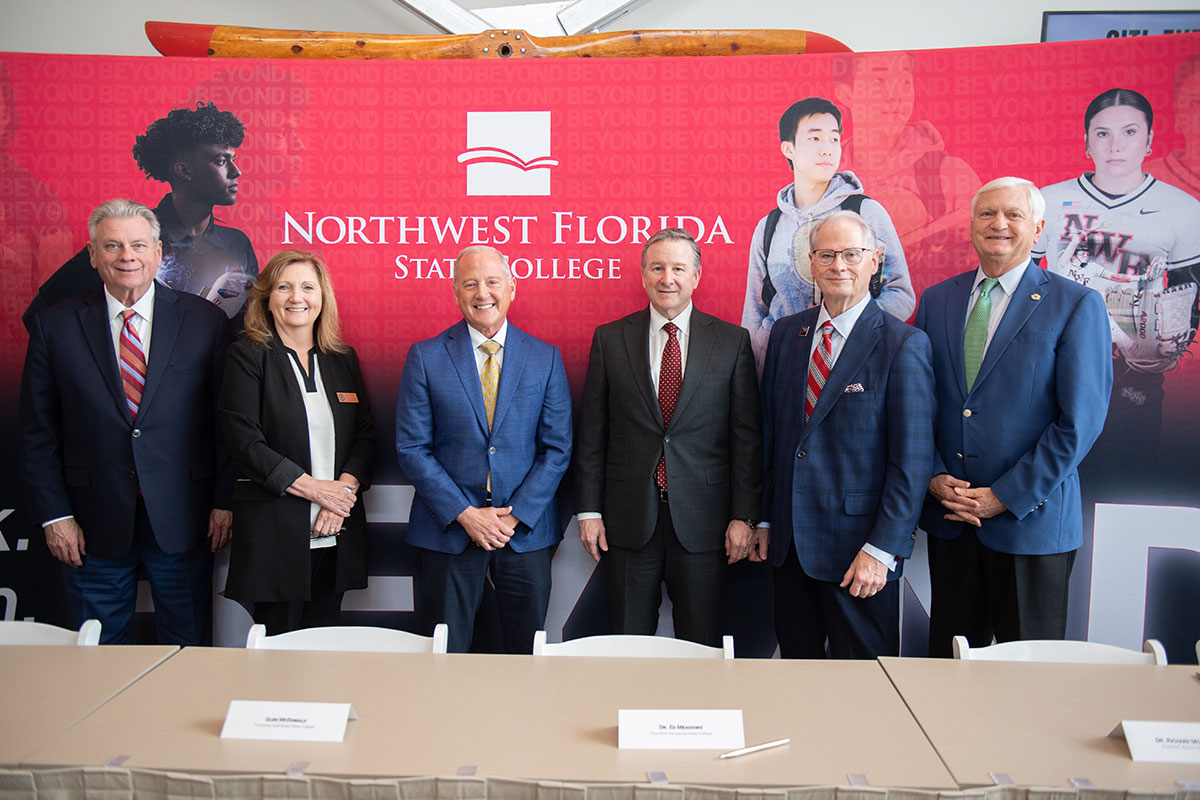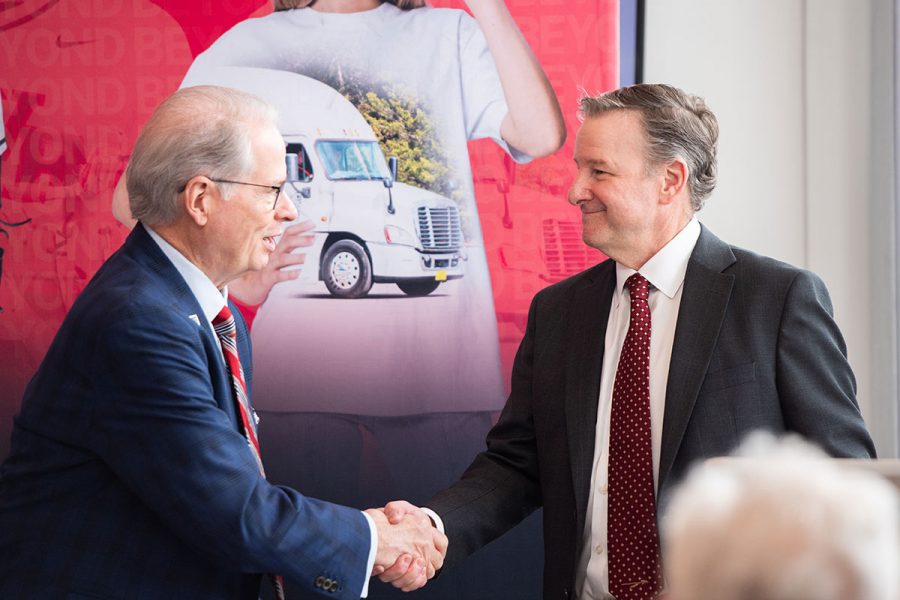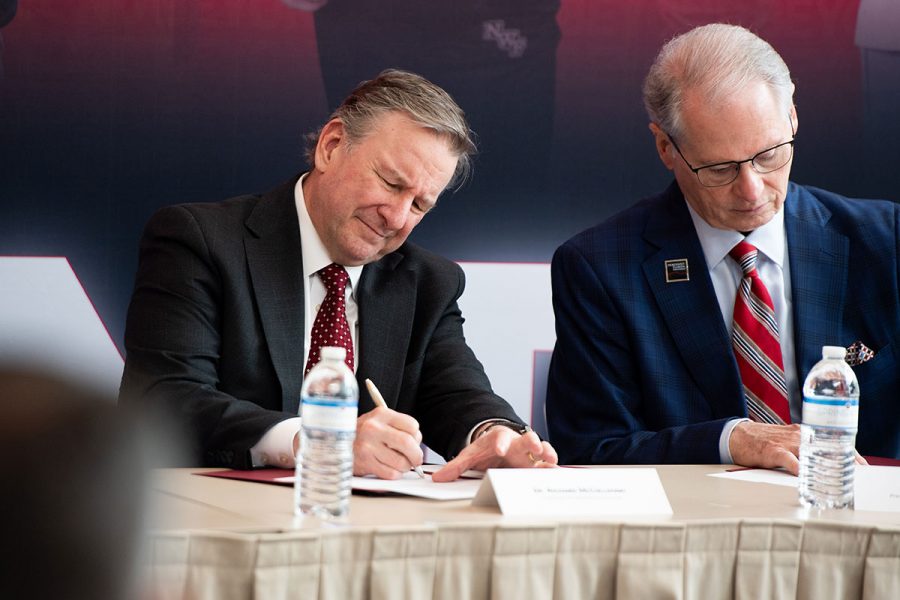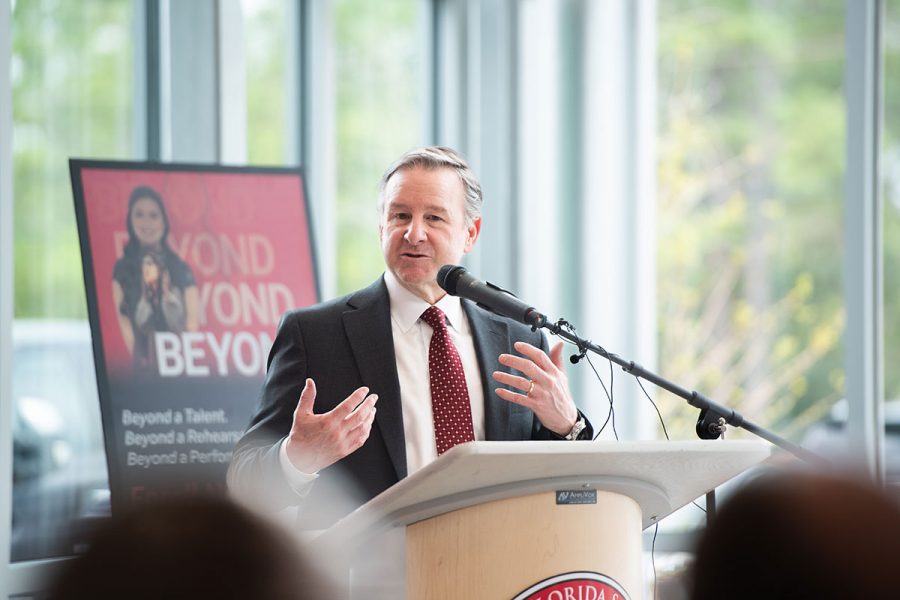Florida State University and five Northwest Florida state colleges are joining forces to provide educational support for projected growth in high-tech industries including aerospace, additive and advanced manufacturing, and health care.
Representatives from FSU, Tallahassee Community College, Gulf Coast State College, Chipola College, Northwest Florida State College and Pensacola State College gathered at the NWFSC Aviation Center of Excellence in Crestview to sign the memorandum of understanding Monday, March 25. The signing was followed by a brief tour of the facility.
“When I came to Florida State University, one of my goals was to make sure Florida State was a good partner,” said FSU President Richard McCullough. “These five institutions provide a primary access point to higher education in the region, which plays a huge role in workforce development. These kinds of agreements that bring our campuses together are incredibly important.”

McCullough was joined by the Glen McDonald, president of Gulf Coast State College; Devin Stephenson, president of Northwest Florida State College; Jim Murdaugh, president of Tallahassee Community College; Ed Meadows, president of Pensacola State College; and Bonnie Smith, associate vice president for student affairs at Chipola College in signing the MOU.
Each of the six institutions are working in these areas to meet the educational needs of students in Northwest Florida. The Memorandum of Understanding signifies an official pledge of collaboration for the colleges to provide opportunities for students who will become the workforce of the future.
“This is incredibly important for this area with all the Air Force bases and Naval Research Center and all the things going on in aviation and advanced manufacturing,” McCullough said. “This area is primed to completely explode and grow, but one of the things that’s really missing is workforce development, and the people to feed all these industries so that we can attract even bigger companies in aerospace and advanced manufacturing to this area.”


One of the projects on the horizon would build aerospace and advanced manufacturing facilities in Panama City and include operations within or near the Northwest Florida Beaches Airport. The Triumph Gulf Coast Board voted in November 2023 in favor of the proposed $98.4 million Florida State University project, also known as the Institute for Strategic Partnerships, Innovation, Research, and Education (InSPIRE). The project also includes funds to grow the number of engineering graduates in Panama City, with dollars dedicated to STEM outreach activities in the eight-county area served by Triumph.
“Every time we have these audacious ideas, people believe and buy into the vision and then we get the resources to do it,” McCullough said. “It’s huge for us. And now it’s our responsibility to go and deliver and make sure that we follow through on making those visions a reality.”

FSU is also expanding its health care educational and research offerings. The university is partnering with Tallahassee Memorial HealthCare and The St. Joe Company to establish a facility in Panama City Beach that will include a medical office building scheduled to be complete in 2024. This building will ultimately house TMH Physician Partners – Primary Care, Tallahassee Memorial Urgent Care Center, an ambulatory surgery center, as well as cardiology and orthopedic services.
Plans include a 100-bed hospital with an emergency center and other inpatient services, including surgery, cardiology procedures and imaging, to be complete by the end of 2027. This will also include opportunities for FSU researchers focused on aging and digital health, as well as residency programs and clinical rotations for FSU medical students.
The Memorandum of Understanding outlines an agreement that FSU will work with the other colleges, as they are eligible, on InSPIRE, FSU Health and other programs to grow and retain the needed regional skilled workforce to establish Northwest Florida as a global hub for aerospace, advanced manufacturing, and health care. Representatives of each institution will meet no less than three times each year to discuss potential projects, work together on funding, and collaborate on other areas of interest.



